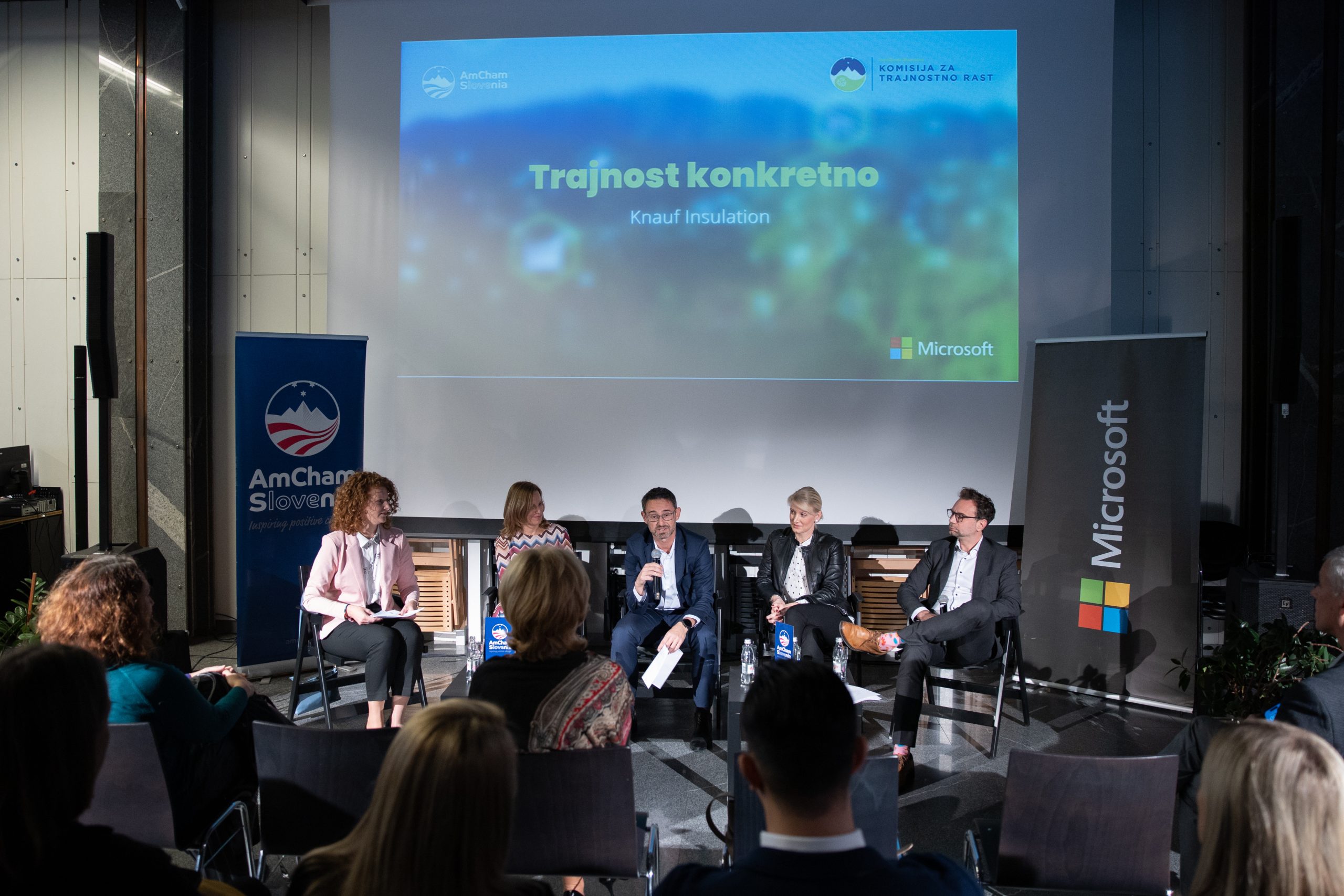Ljubljana, 30 November – Sustainability is the only possible strategy, participants of an AmCham Slovenia event agreed in Ljubljana on Wednesday. Business representatives note the green transition is an opportunity for Slovenia, too, while the government expects the new Ministry of Environment, Climate, and Energy will provide significant support to business in this regard.
Mojca Markizeti, director for ESG and climate in the audit & assurance department for Central Europe at Deloitte and co-chair of the AmCham Slovenia Sustainable Growth Commission, highlighted at the outset the importance of ESG (environmental, social, and corporate criteria) for the economy.
The economy, she said, is undergoing a “huge transformation” as businesses need to adapt in the face of climate change if they are to survive. This is an important opportunity for Slovenia. Many countries around us have already rolled up their sleeves, Markizeti added, pointing out that the state also had a role to play here.
Environment Ministry State Secretary Uroš Vajgl said that “the later we start with the curbing of emissions, the more expensive it will be,” with Slovenia being ready to commit to the measures the EU is adopting under the EU’s Fit for 55 plan.
Companies that are large emitters and are included in the emissions trading scheme will have to reduce emissions by 61% by 2030. The part of the economy not covered by the scheme is currently targeted to reduce emissions by 36% by 2030, but it will be necessary to be more ambitious here, Vajgl argued.
He feels optimistic in the face of Slovenia getting a new ministry that will integrate climate policy and energy and transport as the two biggest sectors that put a strain on the environment.
Business representatives presented examples of good practice at the event, underlining the importance of a company’s management’s commitment to sustainability.
Microsoft Slovenia head Barbara Domicelj pointed out that Microsoft had been carbon neutral since 2012, with a commitment to be carbon negative by 2030 and to remove from the environment by 2050 all emissions they have caused since being founded in 1975.
“This also involves simple things,” she stressed, mentioning the separation of waste in each branch, the energy efficiency of the buildings in which they operate, drinking water only from glass bottles, and the electrification of vehicles.
Jure Šumi, the head of digital marketing and brands at Knauf Insulation, gave a presentation on how sustainability is being implemented in the construction industry, which globally consumes 50% of all resources and generates 35% of all waste.
Between 2010 and 2020, the amount of waste going to waste sites was reduced by 67% and carbon dioxide emissions by 23%, he said, mentioning a facility in Belgium set up to try to create almost 100% recycled products from waste materials.
NLB has also been working intensively on sustainability since 2020. Alenka Recelj Mercina, the bank’s sustainability coordinator, said they were particularly concerned with how to reduce emissions in their portfolios. Speaking of an “absolute revolution,” she noted the bank was committed to reduce the financing of emissions to zero.
Source: STA.

